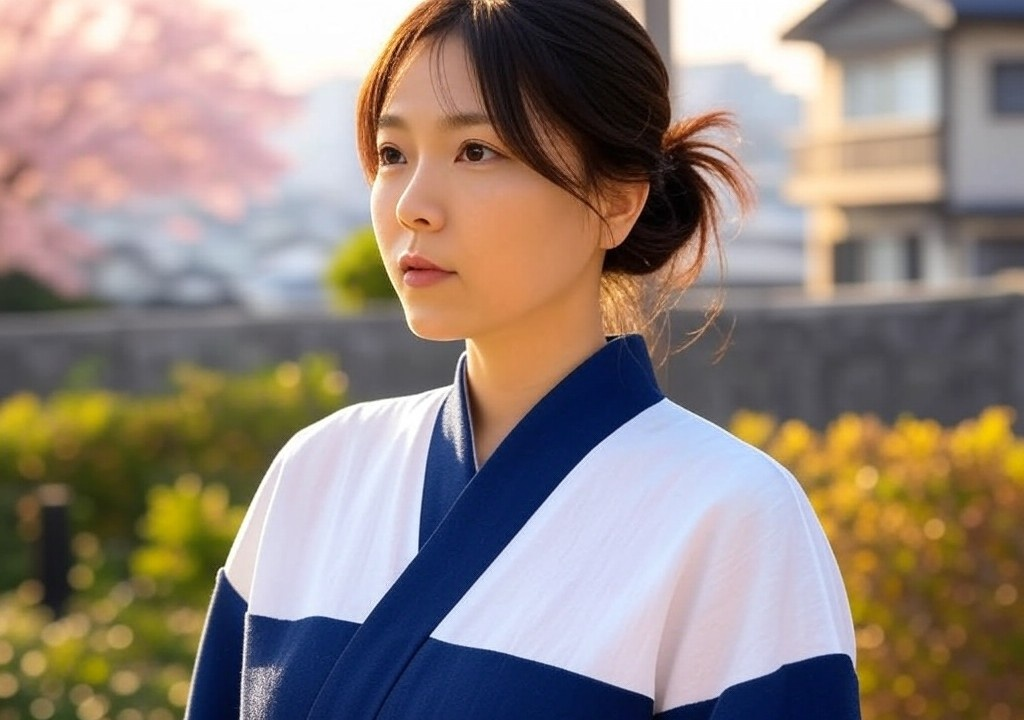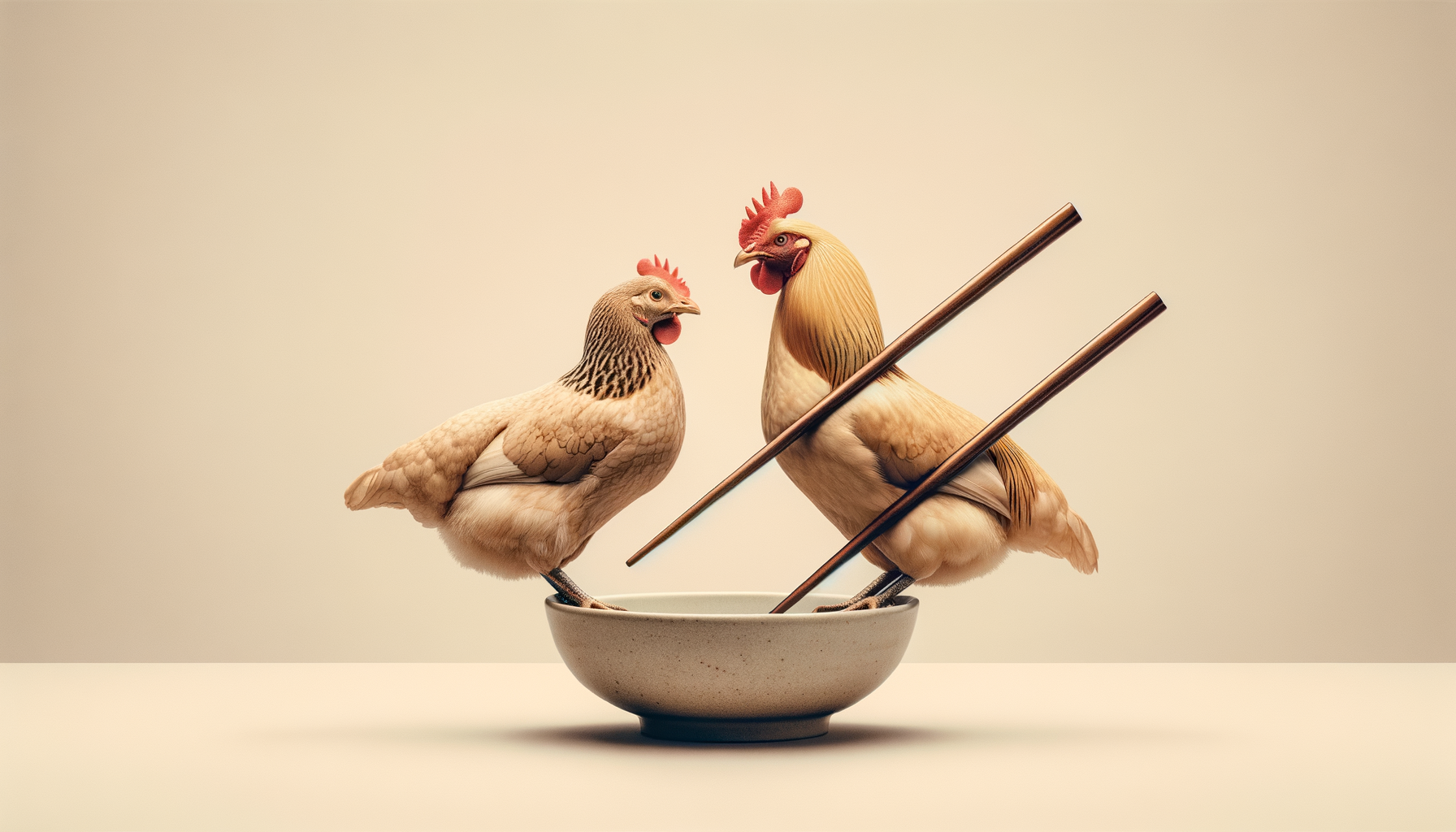Here’s a confession about my family: We hoard stories the way some people hoard vintage vinyl or rare Pokémon cards. Over the years, we’ve assembled an eclectic archive of tales—half-history, half-folklore—that shaped not only how I see the world but also how I approach relationships. To some, they might seem absurd. To me? They carry all the wisdom of a thousand TED Talks packed into the offhand remarks of people with mismatched socks and tea-stained mugs.
Here’s one of my favorites.
The Legend of the Single Chopstick
Growing up, my dad had an expression he loved to drop at random moments—whenever we were bickering or when he'd watch a samurai movie where loyalty and honor inevitably brought everyone to tears.
"One chopstick,” he’d say, holding a single utensil in the air, “will break. But two chopsticks? Stronger. They bend, not break."
It was dramatic, made even more so by the fact that he usually said it between sips of barley tea as though he were delivering a monologue in a Kurosawa classic. And it wasn’t just about teamwork, though that’s what I thought at first. As I got older, I realized it was about the quiet strength of relationships—romantic or otherwise.
One chopstick alone is fragile: an individual can be strong, sure, but there are days that will stretch you thin like overcooked soba. The right relationship, though, offers stability. You’re there to catch each other before you snap—or at least prevent the other from rolling off the proverbial bento box.
This principle might seem sentimental in the age of “you complete me” clichés, but I’ve found it to be oddly practical. When I was younger, fresh from graduate school and obsessed with proving I could make it on my own, I mistook “independence” for “isolation.” I believed love was a luxury for after I’d built a life so solid no one could shake it. Except... that solid life felt empty when there was no one there to celebrate the small wins with me. The second chopstick isn’t there to overshadow the first, but to steady it. Building something together—not just shoulder to shoulder, but intertwined—isn’t a crutch; it’s an art form.
The Tale of Aunt Megumi’s Porcelain Chicken
Then, there was Aunt Megumi, my mom’s sister, an eccentric woman with an odd set of rules about love. She always sat at the family table with an impossible juggling act: a cigarette in one hand, chopsticks in the other, and a wineglass somewhere in between. Aunt Megumi had a particular dislike for the idea of “types” when it came to romance.
“Forget types,” she’d say, tapping her ash dramatically into her tofu bowl. “’Is he tall?’ ‘Is she funny?’ None of that matters. The question is: Can you survive buying a porcelain chicken together?”
The porcelain chicken story is now infamous among family lore. At one point in her thirties, Megumi briefly dated a sculptor who worshipped at the altar of minimalism. On a brief trip together to a pottery market in Nagoya, she’d tried to buy—and I kid you not—a comically oversized porcelain chicken. She loved it. He hated it. Things escalated until apparently someone threatened to leave the market by taxi. That relationship didn’t survive the chicken debacle.
Years later, Megumi explained her bizarre litmus test. “It’s not about the chicken,” she said. “It’s not even about the fight. It’s about the compromise. If I love the chicken enough to argue for it, and he can’t see why that matters, how can we navigate the big decisions, like where to live or how to spend our Sunday mornings?”
Profound, no?
It got me thinking about non-negotiables in relationships—the quirks that make us who we are and the values we aren’t willing to abandon. For some people, it’s about shared beliefs; for others, it’s humor or lifestyle compatibility. The chicken merely reminds us that love isn’t about finding a carbon copy of yourself. It’s about loving someone enough to understand why that absurdly large, wildly impractical symbol of domestic joy might mean everything to them—and maybe even finding a space for it on the mantle.
The Mystery of the Lost Umbrella
We all have “that uncle” in our families. Mine’s Uncle Hiro, a guy who owns exactly three shirts, grew a perfect tomato garden on his apartment balcony, and lectures anyone who will listen about the value of not being too attached to material things. Tragically, his lifelong philosophy is tied to an umbrella.
In his twenties, Uncle Hiro was dating someone my family refers to only as The Umbrella Woman—a nickname lost to history that rolls off the tongue in Japanese as if it were the title of an Ozu film. He’d bought her a beautiful parasol, hand-painted with cherry blossoms. One rainy day, she forgot it somewhere, and upon learning this, he shrugged and said, “Ah, that’s life.”
Her response? “If you don’t care enough to be angry, you don’t care at all.” Naturally, they broke up before the umbrella could be recovered. Uncle Hiro maintains it was her loss, and now he enjoys recounting this tale with the smug ease of someone who doesn’t know anger management involves more than just choosing not to care.
While I don’t subscribe fully to his theory (honestly, please argue over umbrellas if it matters to you), there’s value in his take. Relationships can trap us in a cycle of competitive pettiness—who cares more, who sacrifices more—but that’s a mistake. Relationships aren’t ledgers where every kind act or forgiven slight is balanced on the scale. It’s not about winning; it’s about knowing when to let the umbrella—and the resentment—go.
Wrapping Up the Bento Box of Wisdom
My family stories haven’t taught me the secret to the perfect relationship—spoiler: that doesn’t exist—but they’ve given me plenty of ways to think about human connection. From my dad’s chopstick metaphor to Aunt Megumi’s porcelain chicken, they’ve reminded me that love isn’t about perfection. It’s about balance, compromise, and the occasional argument where no one really wins but everyone learns.
Sometimes you’re the chopstick, steadying someone in the storm. Other times, you’re battling over a ridiculous chicken while simultaneously thinking, "Wow, this person is my whole world." And yeah, sometimes, you let the umbrella go.
Families shape the way we love. They teach us about patience, quirks, and how to laugh in the middle of chaos. I may not have all the answers, but I do know that when life feels messy, I can always look back on these stories and find something meaningful—and maybe even hilarious—in the absurdity of it all.
Now, excuse me—there’s a porcelain chicken I saw online that I absolutely need to buy.




















